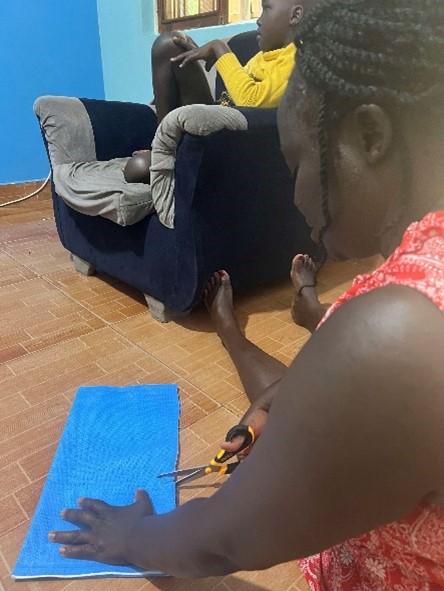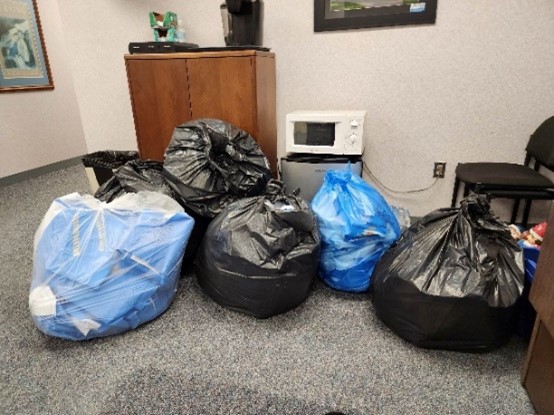
Oaklawn Partners with Mustard Seeds to Support Women in Uganda — and Keep Medical Waste Out of Landfills
Marshall, MI — A meaningful partnership between Oaklawn and nonprofit Mustard Seeds is making a difference halfway around the world — and here at home — by supporting girls and women in Uganda while repurposing hospital materials that would otherwise end up in landfills.
The collaboration began in late 2021, when Oaklawn connected with Mustard Seeds, a volunteer-led group that provides basic hygiene items, handmade clothing, and empowerment tools to underserved women in Uganda. The partnership took shape when Mustard Seeds organizer Joan Chapman sought donations of fabric to make reusable hygiene kits. At the same time, Oaklawn staff recognized an opportunity: the blue wrap material used to cover sterile surgical instruments — although clean and unused — was being discarded after trays were opened in the operating room.
Rachael Herrera from Oaklawn’s Surgical Services team worked with Jen Stapleton and others to explore whether this durable material could be reused. While earlier ideas like making patient clothing bags proved impractical, the connection with Mustard Seeds offered a promising solution. With the hospital’s approval, clean wrap material is now collected and donated to Mustard Seeds volunteers, who sew the fabric into wet bags and other essential hygiene items for women and girls in Uganda.
Because Mustard Seeds has limited storage capacity, donations are gathered as needed. When the group requires more material, Joan contacts Jen, who then arranges for Oaklawn’s Surgery department to save the wraps for pickup. The effort is small but mighty — keeping usable materials out of the landfill while helping women across the globe lead healthier lives.
During a recent trip to Uganda, Joan brought several of the donated wraps directly to local women, empowering them to cut and sew the material themselves. Each kit includes handmade pads, a wet bag sewn from the blue wrap, and other essentials. Donations also help cover the cost of soap and underwear to be included in the kits.
“This is a beautiful example of how local compassion and global impact can intersect,” said Jen Stapleton. “It’s been inspiring to see how something we once threw away can become part of a woman’s journey to health and dignity.”





